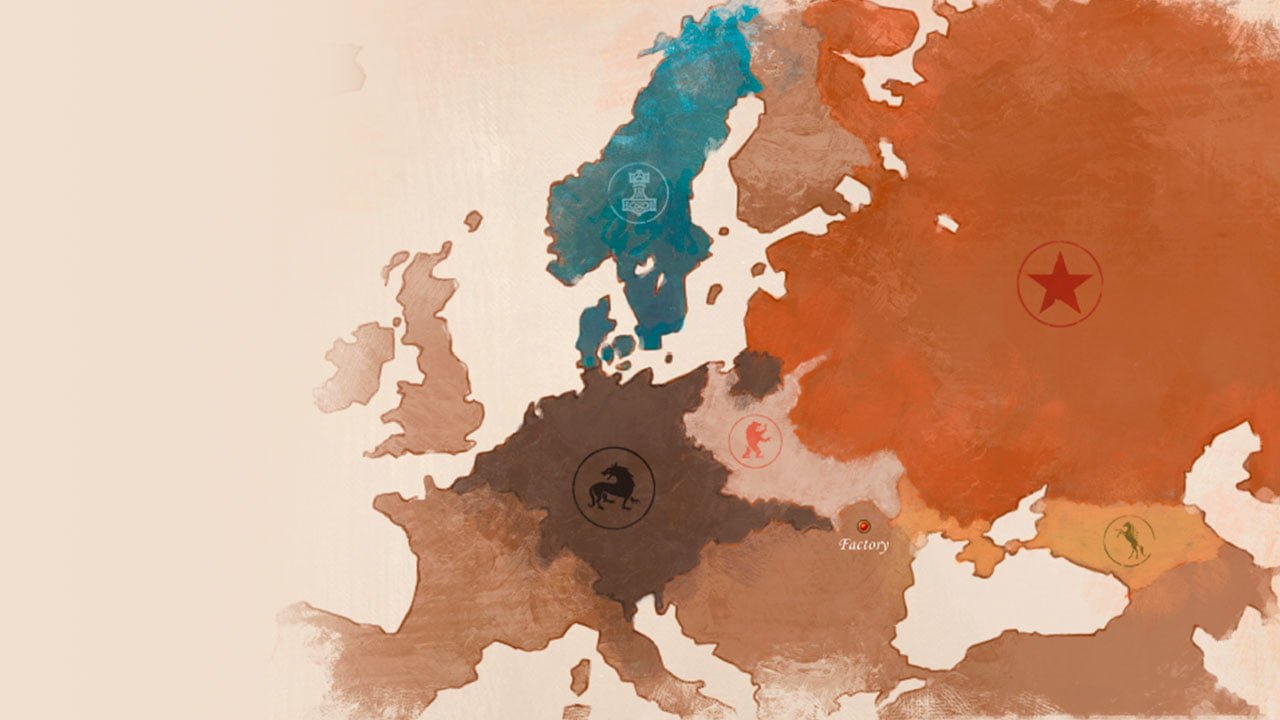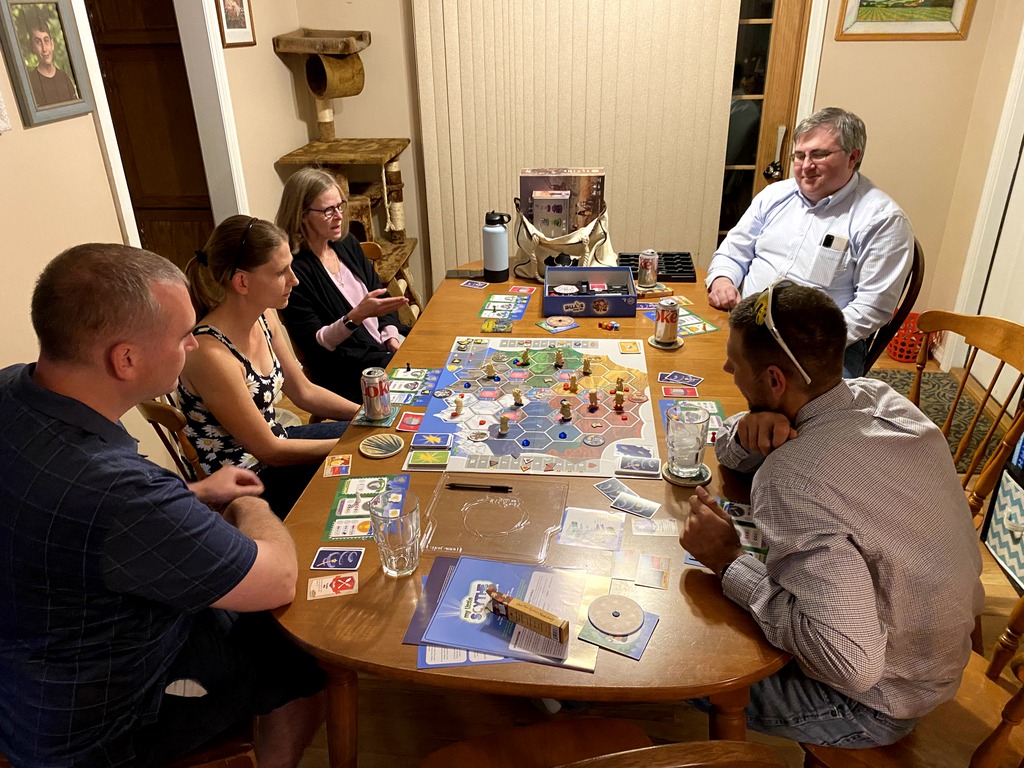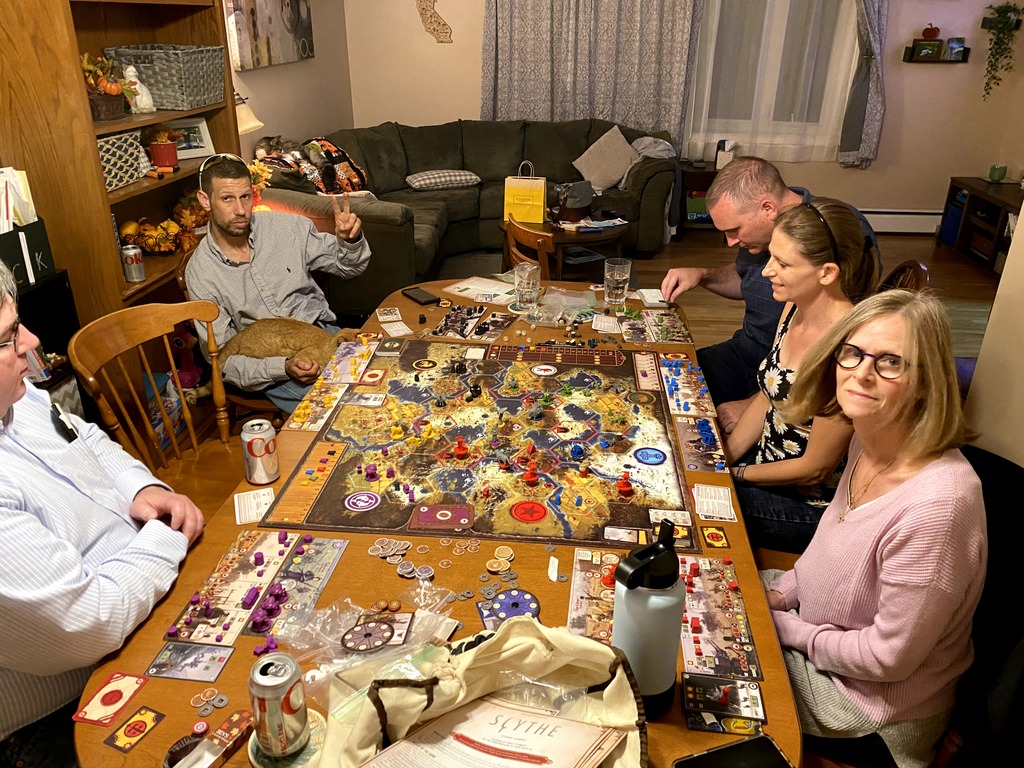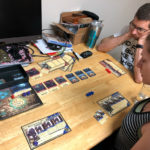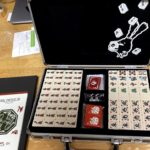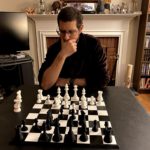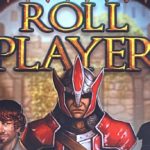Last week, we saved the forest with apple pies in My Little Scythe. Now we have to save the world — or at least 1920s Eastern Europe — in Scythe.
Both “My Little Scythe” and “Scythe” have similar game play. In both, you choose from among a certain amount of actions, that are upgraded as the game progresses, in order to boost your faction and reach a set number of goals.
Scythe takes that basic template and bolts on asymmetric gameplay, where each faction plays a little differently from the others, with different advantages. I played Crimea, which also grabs parts of both what would be Ukraine and Russia in today’s world, and utterly controls access to the Black Sea. Crimea’s special ability is built around farming combat cards and using them to make itself a more formidable opponent, as well as one that is deadly in a fight.
But, before we got into all that, since the grandchildren had been asking so much to be part of Game Night, we started a game of My Little Scythe for them to play with us. It wasn’t long before they found other things to do, so the adults finished their game for them.
I love my grandkids, but any game that takes more than five minutes to play isn’t going to hold their attention.
One does not just walk into Scythe. While it is vaguely similar to My Little Scythe (or rather, MLS is vaguely similar to Scythe, as it is a remix of the larger game for kids) — while the one game resembles the other, Scythe focuses more on “engine building” than rushing for trophies.
Each faction has an easier path toward one or two objectives than most other factions. Taking the available resources into account, each players comes up with a combination of moves that will help them complete that objective. Crimea is poor in wood and oil, but strong in grain and iron. Grain helps in recruiting. Recruiting gives benefits when the people adjacent move, and can also help generate combat cards. Combat cards, for Crimea, can be traded in for resources. Crimea also can gain the Scout ability, which allows it to steal combat cards from other players before combat begins, making them a deadly enemy. I was also using my engine to gain on the power track, which also can be spent for combat.
Unfortunately, though, I wasn’t able to get my engine running before we ran out of time. Playing My Little Scythe, and then breaking for dinner, didn’t leave us enough time to finish.
Next time? We’ll see. Crimea still has time to rise again.
